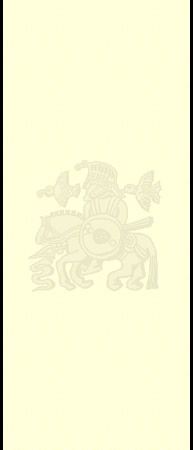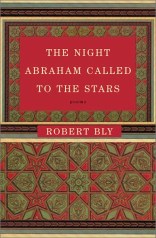



| Web site design and maintenance by Akikaze Media Services. All content of this site, unless otherwise noted, is copyright ©2001 Robert Bly. All Rights Reserved. Any duplication, in any form without the written consent of the copyright holder is prohibited. |

The ghazal is an Arabic form of poetry in which the individual strophes, or stanzas, are poems themselves, islands--as it were--in a galaxy forming an integral habitude. By definition, the ghazal is also a love poem, and it is the concept of love--the concept of two lovers--that is a pervasive theme of The Night Abraham Called to the Stars, a new collection of poems by Robert Bly. Of course, this new book demonstrates the wide variousness of the ghazal, hearkening back to the poet's own past as well as western cultural history, including Robespierre, Madame Bovary, Gustav Mahler, the etchings and paintings of Rembrandt, haystacks in the paintings of Claude Monet, lingering ruminations about the American Civil War and then World War I in Europe, and the difficult concept of separation, among many themes and variations.
Whether Bly is speaking to a real or idealized lover, the reader nonetheless partakes of his adoration of women--or of one woman in particular:
You and I have been in love with the moon
Rising for a long time, ever since the day
Our mothers took our hands in the spring field.
That was the day we heard the cry of the hemlocks.
We became lovers then; and our road was decided.
We laughed and cried over the warmth of the spring.
(from "When We Became Lovers")
Old literary feuds, brought about by envy or disagreement, are surprisingly explored in the third part of "The Way the Parrot Learns":
One teaspoon of envy was enough for me
To attack Robert Lowell; with a tablespoon
I could have taken on Henry James and Abelard.
About his own genre and those who practice it, Bly is rueful, as in these three disparate strophes of "The Raft of Green Logs":
Poetry is an occupation appropriate for slaughterers
And knife-wielders. Life on earth needs many kills
To engender the soft leaps of the cheetah.
God made me tender; but writing poetry,
With its furry herd of images that have
To be saved or murdered, has made me fierce. . . .
During the years I called to Rilke and Boehme,
I hung on to small branches; I went over
The waterfall still holding the twig of reason.
And in the title poem, Bly evokes Abraham calling out of despair:
My heart is a calm potato by day, and a weeping,
Abandoned woman by night. Friend, tell me what to do,
Since I am a man in love with the setting stars.
Robert Bly's new collection of poems is rampant with the ecstasy of what it is to be a poet as well as one who constantly reads and travels, then dips into his experiences for imagery and associative correlations. This is a book of surprising gifts, emanating from the fertile, active imagination and intellect of a major American poet.
—James Naiden, The Commercial Appeal, Memphis, TN